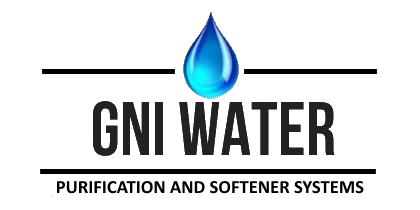FAQ
Most frequent questions and answers
So yes, assuming essential minerals are not removed and the filter is replaced frequently filtered water is healthier than tap or bottled water. Some filters such as reverse osmosis remove all good and bad content of the water.
And more than half of the chemicals found in municipal water are not regulated. … But water contaminants and water quality vary from one local water utility to another, so you want to purchase a filter that is effective at capturing the right contaminants.
What is the best type of water to drink?
Mineral Water. Mineral water “contains up to four times as much calcium and magnesium as regular tap water. …
Distilled Water. “Distilled water tends to be acidic and can only be recommended as a way of drawing poisons out of the body. … Purified Water
De-Ionised Water. …
Spring Water. …
Bottled water retailers are well aware of the quality of our nation’s tap water–in fact, at least 24 percent of the bottled water we drink is actually filtered tap water. Pepsi’s Aquafina and Coke’s Dasani, the top bottled water brands in the country, are two of the brands that bottle filtered municipal water.
Drinking water, on the other hand, is monitored by the EPA, which has regulations for more than 90 contaminants in drinking water, and must adhere to clean water standards under the Safe Drinking Water Act. Not surprisingly, the EWG recommends filtered tap over bottled water, which you can do yourself.
Distilled water is too acidic and alkaline water is too alkaline. The ideal pH of your water should be between 6.5 to 7.5, which is neutral. Mountain spring water is in this ideal range. It is some of the healthiest water on the planet because it is “living water”. Then there is filtered water.
Bottled water is not typically safer than tap water. In fact, more than half of all bottled water comes from the tap.
When is water considered “clean”? … “Accessible” water must also be affordable (if paid for). According to the World Health Organization (WHO), safe drinking water is free from micro-organisms, chemical substances and radiological hazards that constitute a threat to a person’s health.
Yes, both distilled and reverse osmosis water are devoid of minerals, but ingesting mineral-free purified water is not harmful to your body. … Rainwater is not “dead water!” Minerals are essential to our cellular metabolism, growth, and vitality, and we get majority of them from eating food, not drinking water.
The result is nearly pure water, which which has neutral pH of 7. But if it’s exposed to air, RO water drops down to an acidic pH range of 5 – 5.5. … Alkaline water has a pH of greater than 7, so reverse osmosis water is not alkaline water.
Use glass or unlined stainless steel water bottles. Keep plastic containers labeled with a 1, 2 or 5; they do not contain BPA or other plastic chemicals of concern. Dispose of plastic containers labeled with a 7 inside the recycle symbol.
They can release potentially harmful chemicals into your water. In response, plastics marked with recycle codes 3 or 7 can release a chemical into your water called bisphenol A (BPA) a carcinogen, while BPA-free plastics can release bisphenol S (BPS). BPS has the advantage of being more stable to heat and light than BPA.
Purified water is better than tap water for a variety of reasons. Here are five of the biggest health benefits of drinking purified water:
Tap water travels through dirty pipes and could pick up bits of sand and dust on its way
It’s possible to have bacteria in your tap water
Chlorine is used to disinfect drinking water
Purified water removes the chemicals in your water, while still keeping the essential minerals
Purified water simply tastes and smells better.
Plus, as an added benefit, your coffee machine will last much longer than if you used tap water or spring water instead of filling it with tap water. Why? Tap water contains minerals which deposit on heating elements, which ultimately results in coffee machine failure.
